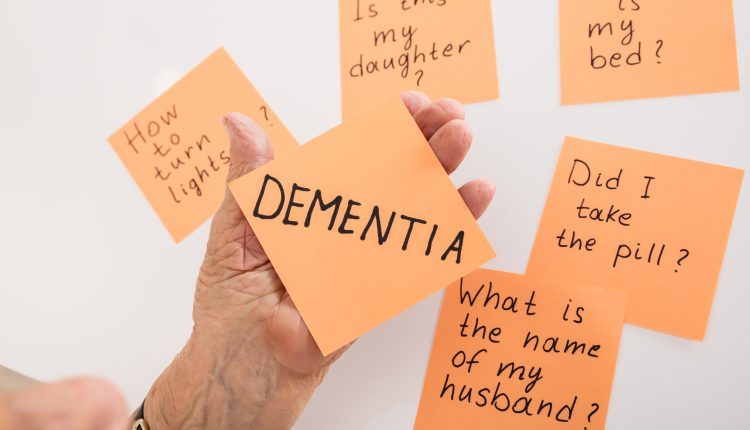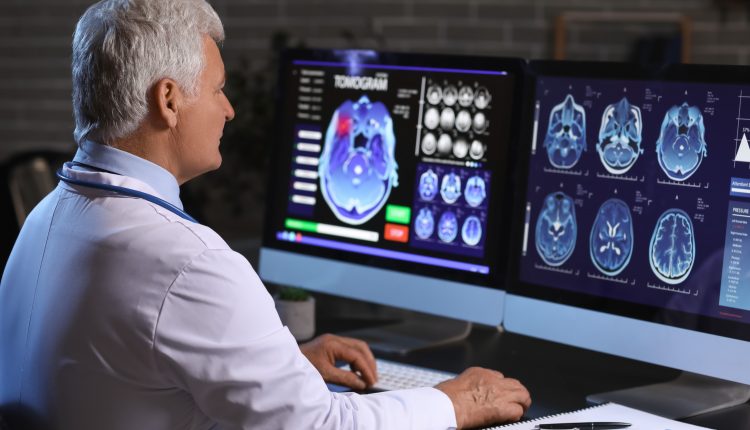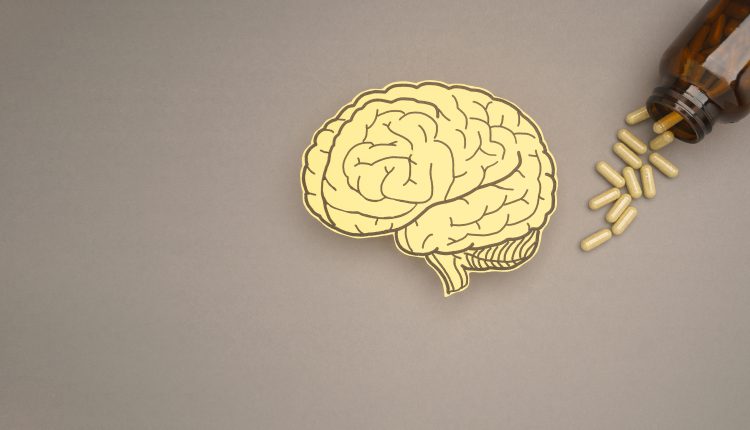
What to Do After Being Diagnosed with Dementia
Both Alzheimer’s and dementia disease are challenging diseases for seniors and their families. Scientists believe these diseases result from genetic, environmental, and lifestyle factors like diet and nutrition. Alzheimer’s diagnosis may be terrifying for many people. However, by learning about this disease and knowing what to expect, you can cope with a dementia diagnosis. Having the correct information can empower you to make the best decisions.
Hearing the bad news from doctors can be overwhelming, but this article is here to help you get a clear idea about the road you have ahead after being diagnosed with dementia. Keep reading till the end because the more you know, the easier you can get along with this disease.
Contents
What Do We Need to Know about Dementia?
The natural step after a diagnosis is to know your disease well. It is worth mentioning that there is a difference between Alzheimer’s and dementia. Alzheimer’s is a degenerative brain disease and the most common form of dementia. In contrast, dementia is not a specific disease. It is a general term that describes a group of symptoms.
The development of dementia contributes to various disorders and factors. These disorders cause a progressive and irreversible loss of brain function. In general, There are different types of dementia, including:
Alzheimer’s disease
Alzheimer’s is the most common form of dementia diagnosed in seniors. This disease results from changes in the brain due to abnormal protein production that is called amyloid plaques and tau tangles.

Frontotemporall dementia
This rare form of dementia is associated with abnormal amounts or conditions of proteins. Dementia of this type is more common in people younger than 60.
Lewy body dementia
Lewy body dementia is caused by abnormal deposition of specific proteins called alpha-synuclein or Lewy body.
Vascular dementia
Vascular dementia results from aged blood vessels. These damaged vessels interrupt blood and oxygen flow and damage the brain.
Mixed dementia
It is when two or more types of dementia occur. Meaning some of the previous changes we discussed happen to the brain at the same time.
Understanding dementia behaviour, including aggression, confusion and manipulation, makes it easier for you to come up with coping strategies to handle problems
What to Anticipate as Dementia Progresses?
In general, dementia has seven stages; its symptoms range from mild to severe. During the early stages, most people can do daily tasks like driving, attending social events, and living independently.
However, since dementia and especially its most common form, Alzheimer’s, are progressive, this disease worsens over time, and the patients will need more support for their daily activities. Common behavioural symptoms are confusion, agitation, wandering, and sleep problems.
On the contrary, patients in the later stages of dementia need 24 hours care and supervision. They may lose their communication ability and need assistance bathing, dressing, feeding, walking, and using the bathroom.
Get Regular Medical Care
Regular checkups become more critical when you or your loved one are diagnosed with dementia. You should make routine appointments with your health care provider or a specialist like a neurologist, neuropsychiatrist, geriatric psychiatrist, etc.
You should know that there is still no cure for dementia, but some medications can help people who suffer from some symptoms. Before taking any treatments, ask the following questions from your doctor:
- Ask about the potential benefits and results of treatments.
- Are there any alternatives to the treatment?
- Ask about the effectiveness, side effects and safety of the treatment.

Tips to Slow Down the Advancement of Symptoms
Fighting dementia is not all hopeless. Some certain actions and tips can help you delay the progress of the disease to the later stages and the worsening of the symptoms.
Stay Socially Active
Socializing and having face-to-face connections can help you enhance cognitive functions. So try to stay in touch with your friends and loved ones as much as possible. Maintain old connections, make new ones, and slow down the deterioration of cognitive abilities. A guide to understanding and communicating with dementia patients can be handy in this regard.
Eat Healthy Foods
Adopting a healthy diet promotes physical health and can increase brain functionality. For example, a Mediterranean diet can decrease inflammation, protect neurons, and increase the connection between brain cells.
Stimulate your brain
Learning things like a new language challenges your brain and strengthens your cognitive skills. Doing so can keep your mind active and sharp for longer. Engage in mentally stimulating activities and open up to new challenges.
Sleep Better
Having a higher sleep quality helps your brain get rid of brain toxins and prevents damaging plaques from building up. You can adopt different ways to a night of sleep with good quality. For example, you can drink herbal teas, change your eating habits, or do specific exercises before bedtime to sleep like a baby.
Stay Away from Stress
High stress levels bring unrecoverable damage to the brain, including shrinking a key memory area, inhibiting nerve cell growth, and worsening Alzheimer’s symptoms. Try to practice relaxation and stress management technics to ease the tension.
Engage in Hobbies
Hobbies are essential to nourish your spirit and find pleasure and purpose in life. Having Alzheimer’s or dementia doesn’t mean that your life is over. Even with advancing symptoms, you can still find other ways to rejuvenate your spirit. For example, if cooking becomes hard, you can discover new dishes and help shop for ingredients.
Find Local Services and Supports
After a dementia diagnosis, you should find out what services are available in your area. Local authorities usually arrange such services, including home care services, equipment, and adaptations for your home.
Get Help for Daily Tasks.
- To get help for your day-to-day tasks, you can use the following tips:
Use simple memory aids such as a notepad or sticky notes to help you remember things. Use a pillbox to keep medicines organized and a pill reminder app to remember to take your medication at the right time. You can also use a calendar to record your appointments. - Ask your family or friends, or find local services to help with daily tasks like cooking, paying bills, transportation, and shopping.
- Use gadgets, devices, and technology for medication management and safety (emergency response, door alarms.etc.)

Stay Healthy
Staying physically and mentally healthy is essential for dementia patients. the following tips come in handy for maintaining your health:
- Talk to your health care provider if you feel depressed or emotionally unstable. Although it’s a common symptom of dementia, there are treatments like therapy available.
- Have a balanced and healthy diet.
- Regularly do exercises like walking. Gardening or doing yoga and pilates for seniors can also be of great help. Exercising helps Alzheimer’s patients feel better and keeps their muscles, joints, and heart healthy.
- Regularly Have Dental, Eyesight and Hearing Check-Ups
Be Cautious with Driving
As mentioned earlier, dementia at early stages does not limit your daily routine tasks. It means that you don’t need to stop driving right after diagnosis, but you are legally required to inform relevant authorities and your car insurance company immediately.
Talk with your doctor if you feel confused, get lost, or need help with directions.
Stay Safe at Home
Ask your health care provider to order a home-safety evaluation and recommend a home health care agency. You can also wear a medical ID bracelet or necklace for when you may get lost or need help. Remove potential fall hazards like rugs and electrical cords.
If you live alone, choose someone you can regularly visit as your emergency contact. You can use the emergency response system if you are at risk of falling. For example, using a specific pendant or bracelet can summon help if you fall and can’t reach the phone.
An occupational therapist can teach you ways to stay independent. Stick with familiar places, people and daily routines, which means you should simplify your life.
If you are working, consider reducing your working hours and replacing them with a less demanding position. Consult your HR department or employee assistance program about family leave, disability benefits, etc.
Final Words
There’s no denying that a dementia diagnosis is scary. But please remember: The best way to cope with it is to do your best and live your life to the fullest. Seek help when you need it, and try to stay active to avoid getting into depression and making the process harder for yourself.
Dementia is a serious disease, but nothing’s serious enough to rob you of the joy of life.
My grandfather was diagnosed with dementia a few years ago, and it was tough for our family to come to terms with. One thing that helped us was educating ourselves about the disease and what we could do to support him. We found that maintaining a routine and keeping him engaged in activities he enjoyed, like gardening and listening to music, helped him feel more comfortable and less confused. It’s not an easy journey, but it’s important to remember that your loved one is still there, even if they may not always remember everything or recognize you.
Thank you for offering practical advice for others going through this challenging situation.